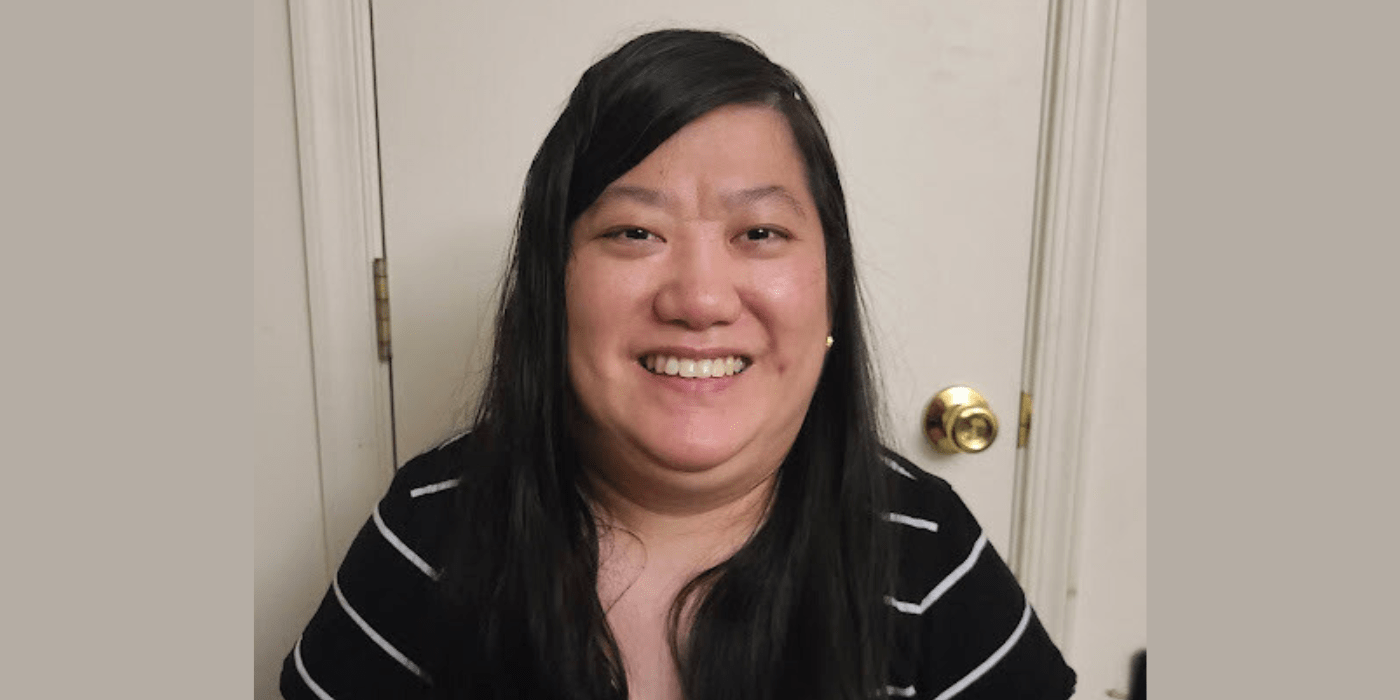
Helping people has always been central to Jenny Lee’s life. Growing up with cerebral palsy — a neurological disorder that affects movement — Lee said that many people assumed she needed help. However, what most people didn’t know is that Lee, who is Korean, took on the role of her “family's representative” from age 12, translating important medical documents and other materials to her parents who didn't speak English.
“Because of the way people perceive me and the way that I’ve always helped my family since I was young, helping people has always been ingrained in me,” said Lee, now a UMD senior majoring in Public Health Practice . “I want to prove people wrong about me, since they judge me based on my appearance alone.”
Lee chose the major for its versatility. Lee’s career paths could include becoming an epidemiologist, health educator and demographer, an array of options she finds very appealing.
“It felt like the right fit for me because you can help people in so many different ways without necessarily having to be in the spotlight of it all,” Lee said.
Lee also hopes to help create changes in health policy. Her grandfather, who is on Medicare, was unable to afford his medication refills, which Lee found unjust. This experience inspired her to seek changes in policies to lower the cost of essential medication for people in similar situations as her grandfather.
“To me, public health practice is trying to connect people to the resources they need to live a better quality of life,” Lee said.
According to Public Health Practice Director of Undergraduate Studies Tracy Zeeger, students in the major focus on topics including social drivers of health and how to work with communities to improve health outcomes and quality of life, the role of research in developing health promotion and community based interventions, and biostatistics and epidemiology to understand health inequities. Zeeger is also the assistant dean and co-director of the Office of Public Health Practice & Community Engagement (PHPCE).
Lee said her disability offers her distinctive perspective when it comes to public health as a whole. For example, since Lee uses a wheelchair and a walker, she sees issues some people might overlook – such as the lack of entrance ramps into buildings. Lee hopes that more people become aware of people with disabilities – and their many abilities as well.
“People tend to believe that people with disabilities aren't capable of anything. I have been told my whole life that I can’t contribute anything to society since I need a lot of help, which is a misconception,” Lee said. “It took me a long time to find the strength to tune them out and fight for the things I believe I can do and more. I hope obtaining my education and having a successful life by working hard will change the hearts and minds that underestimate people with disabilities.”
Graduating this spring, Lee aims to pursue a master's degree in Public Health Practice and Policy. She is currently an intern in the PHPCE.
“Jenny has embodied Public Health Practice in her internship, where she has been working to develop educational interventions for the Calvert County Health Department,” said Zeeger. “With each task, Jenny brings to the team an understanding of community engagement and a willingness to learn.”
In Lee’s free time she enjoys spending time with friends and family, meeting new people and exercising. She loves to watch movies and shows and collect autograph memorabilia of her favorite celebrities.
“For anyone considering the major, I would tell them: You have to have a desire to help people, and you have to also know when to ask for help yourself,” Lee said
By Sumaya Abdel-Motagaly